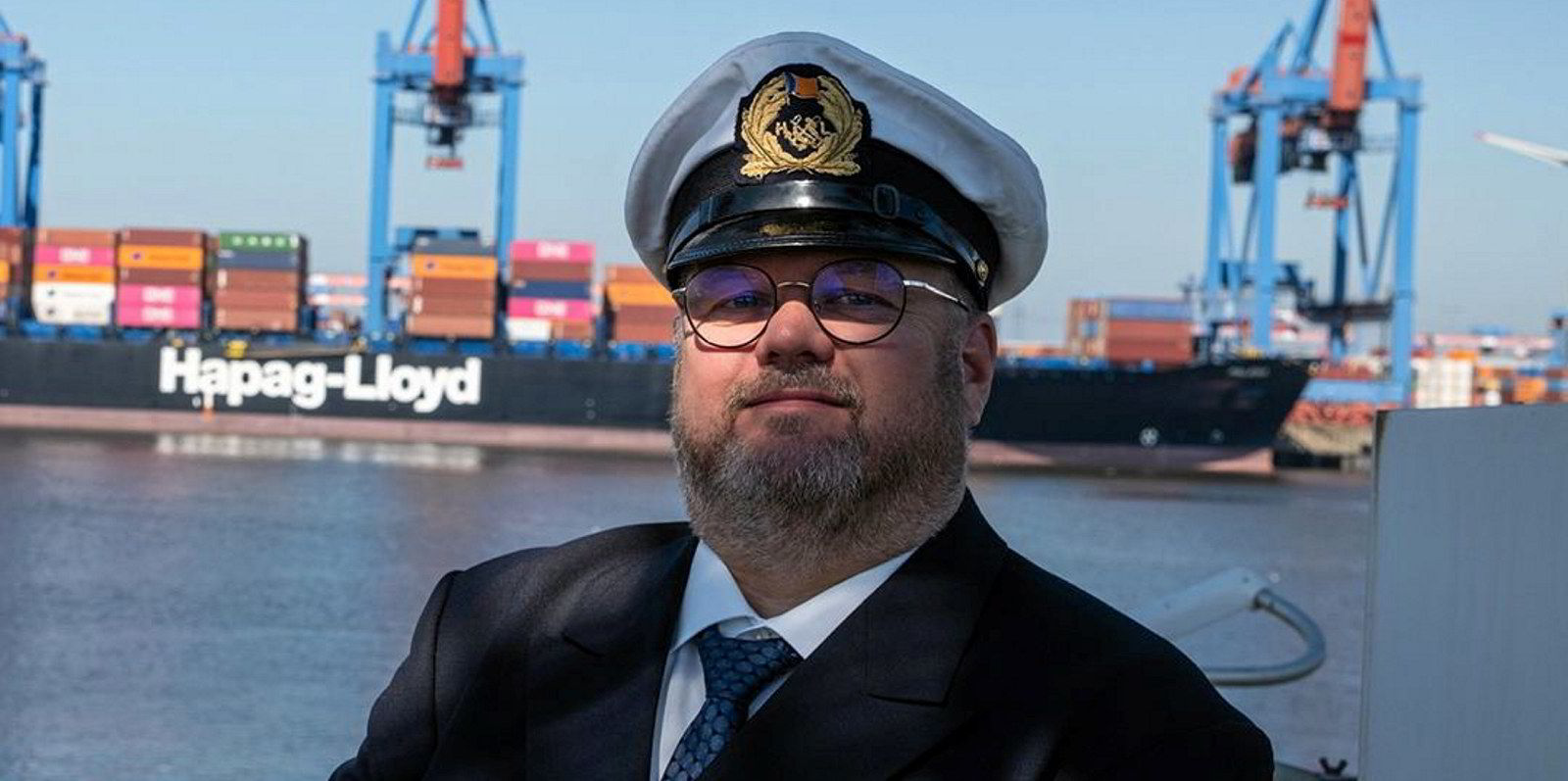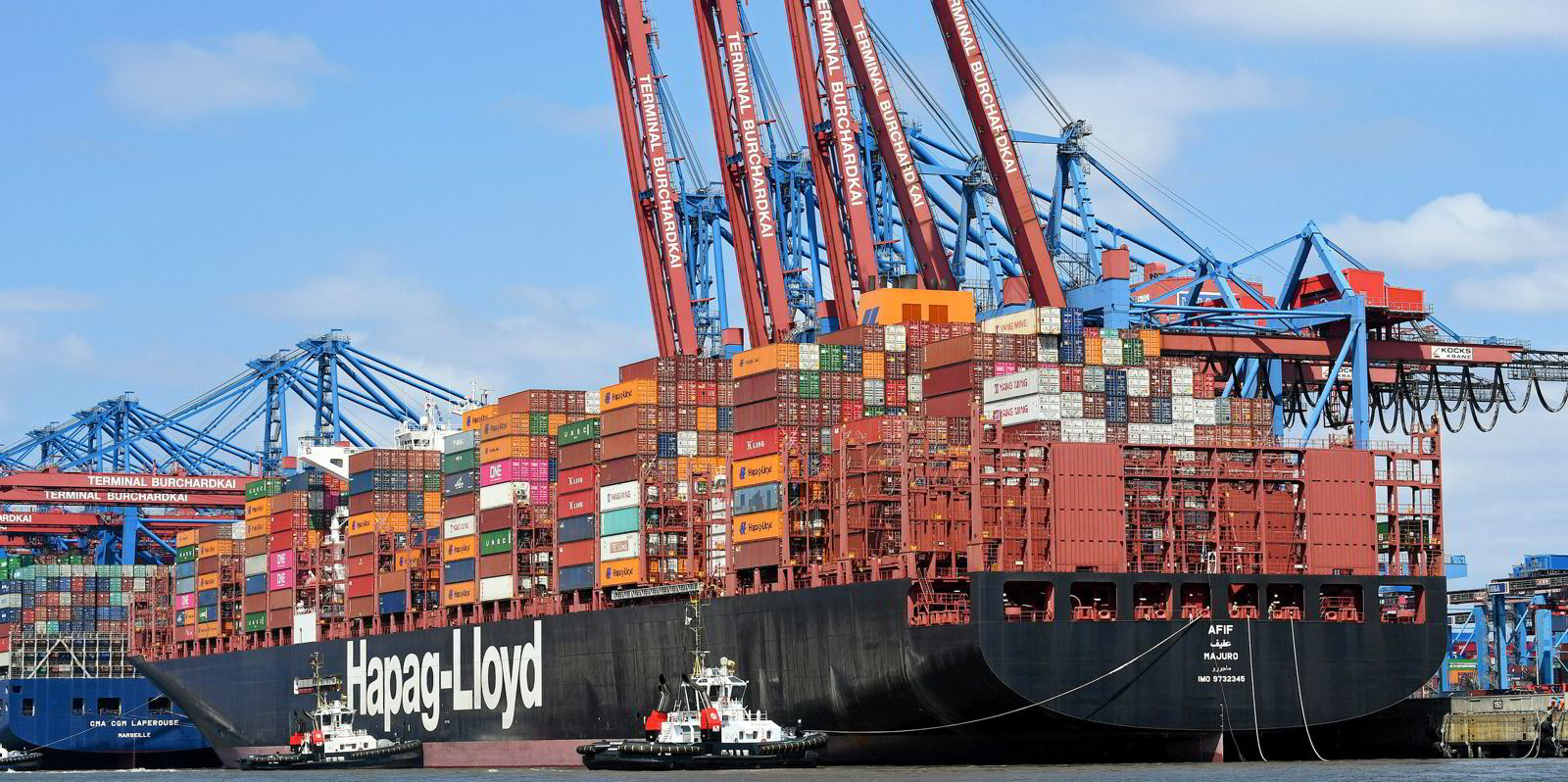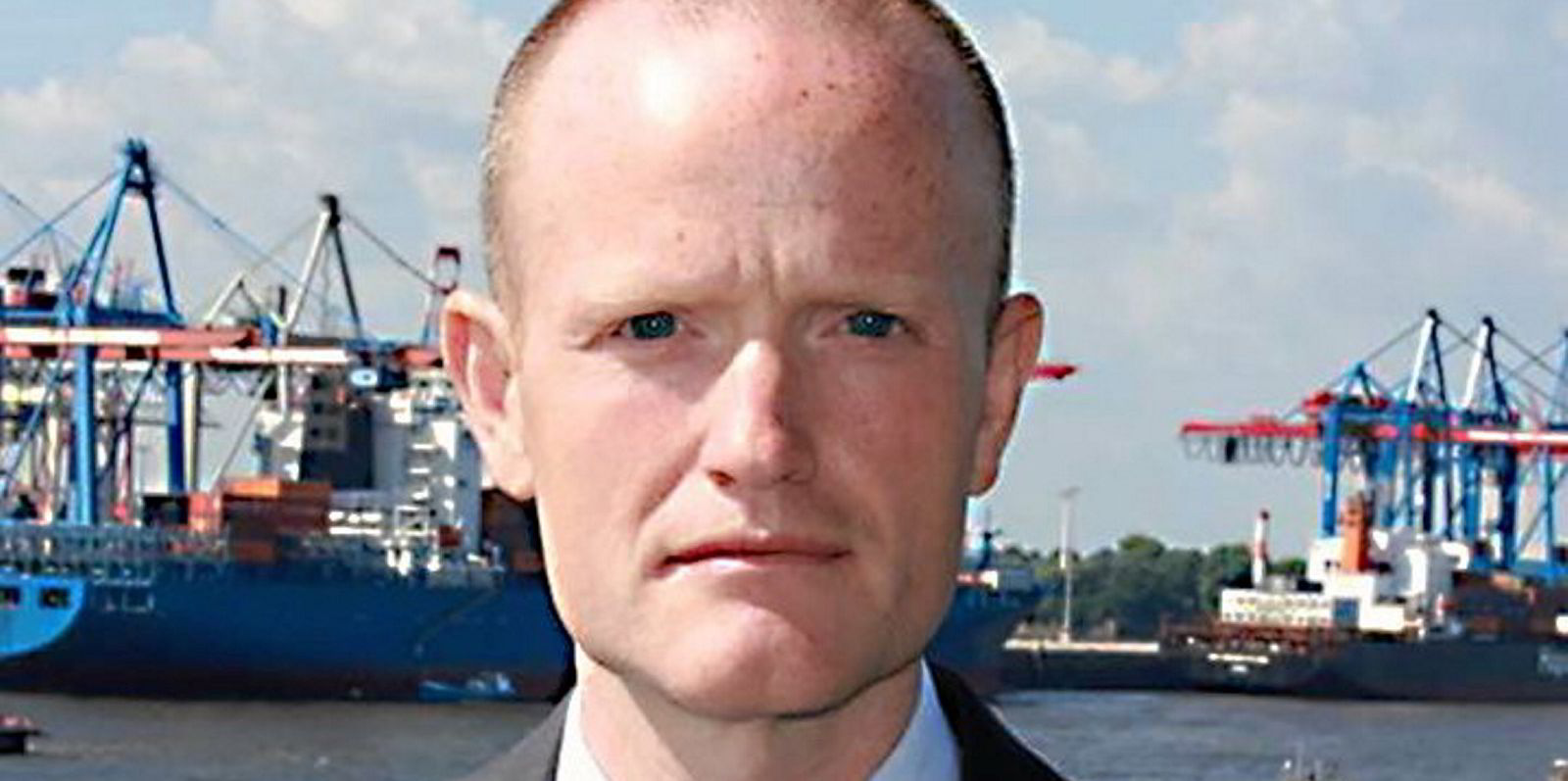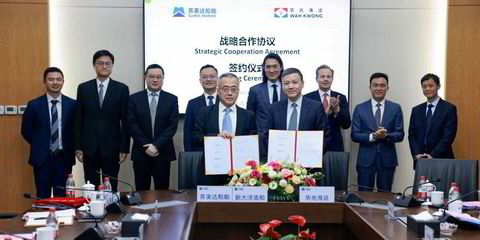German liner giant Hapag-Lloyd is confident of meeting its 2030 CO2 emissions reduction targets as its first LNG dual-fuelled ultra-large container ships prepare for delivery but it is less certain of how to hit its 2045 ambition.
Captain Michael Behmerburg, director of green fuels for global fuel purchasing at Hapag-Lloyd, told IQPC’s 10th LNG Bunkering & Future Fuel Global Summit 2023 in Amsterdam that the company is consuming 4.5 million tonnes per annum of conventional fuel for its entire fleet and emitting roughly 17 mtpa of CO2.
He said the company set an “ambitious target” to reduce its CO2 footprint by 30% by 2030 and be carbon neutral by 2045.
“That’s a very challenging target,” he said. “But if we don’t give ourselves strong targets, it will not work.”
Answering delegates’ questions on stage, he said: “We are quite confident that we are going to reach this 2030 target.
“We see that LNG will bring us one step in the right direction. But we will not reach our target in 2045 with that,” he added, highlighting the “big challenge” in the availability of renewable fuels and bio-methane.
He said the company is working hard on the 2045 target, looking into partnerships, and talking to fuel suppliers, particularly on the biofuels where what they need is a feedstock that is not requested by aviation or road transport.
Captain Behmerburg was speaking to introduce the company’s raft of 12 LNG dual-fuelled, 23,500-teu container ship newbuildings, which he said Hapag-Lloyd expects will reduce its carbon emissions by up to 25%, along with 90% cuts in particulates and SOX.
The first ship started its LNG trial this week and is expected to be delivered in mid-June, with handovers of the other vessels from Daewoo Shipbuilding & Marine Engineering stretching into April 2025.
Boxship behemoths
The boxship behemoths have optimised hulls for their Europe-Far East trades and are fitted with 18,500-cbm, type-B tanks made from high manganese steel.
Behmerburg, who sailed for 30 years, said this will allow them to make a full round trip without the need to refuel en route.
In addition, they are kitted out with a 5,200-cbm very low-sulphur fuel oil tank.
Speaking about the other measures that Hapag-Lloyd has taken on emissions, Captain Behmerburg highlighted that the company has carried out modifications on 150 vessels.
The outfit has also tested biofuel since 2020 on its owned fleet and is working with this on its chartered vessels.
Captain Behmerburg said Hapag-Lloyd is also working with Shell — the major will supply LNG bunkers to its 12 LNG-fuelled newbuildings — on looking further at decarbonisation and future fuels.






